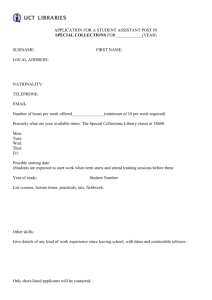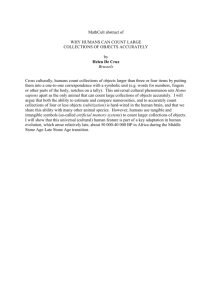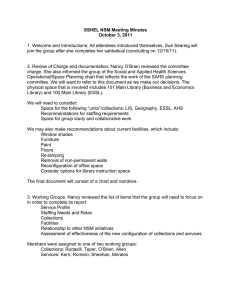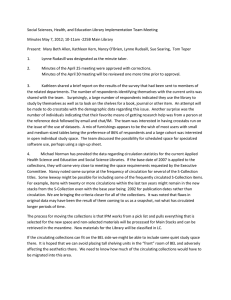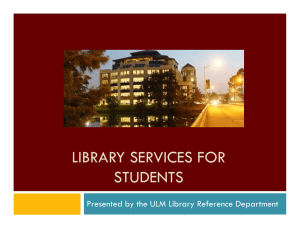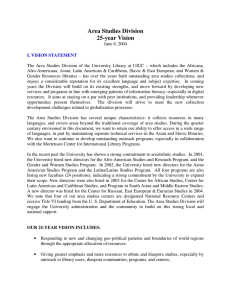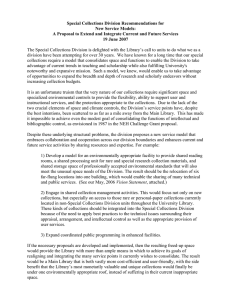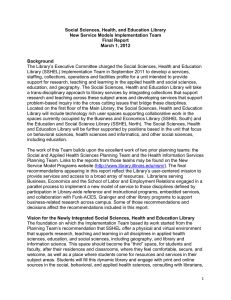INDEPENDENT SCHOOL DISTRICT 196 Rosemount, Minnesota 603.2.2.6P
advertisement
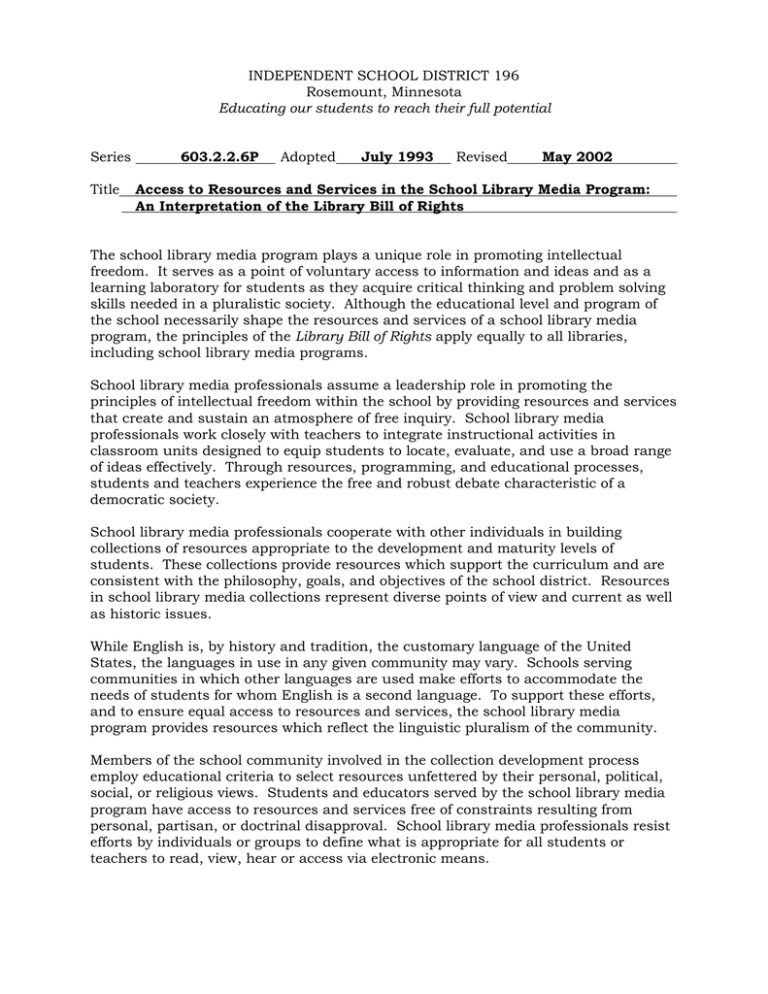
INDEPENDENT SCHOOL DISTRICT 196 Rosemount, Minnesota Educating our students to reach their full potential Series Title 603.2.2.6P Adopted July 1993 Revised May 2002 Access to Resources and Services in the School Library Media Program: An Interpretation of the Library Bill of Rights The school library media program plays a unique role in promoting intellectual freedom. It serves as a point of voluntary access to information and ideas and as a learning laboratory for students as they acquire critical thinking and problem solving skills needed in a pluralistic society. Although the educational level and program of the school necessarily shape the resources and services of a school library media program, the principles of the Library Bill of Rights apply equally to all libraries, including school library media programs. School library media professionals assume a leadership role in promoting the principles of intellectual freedom within the school by providing resources and services that create and sustain an atmosphere of free inquiry. School library media professionals work closely with teachers to integrate instructional activities in classroom units designed to equip students to locate, evaluate, and use a broad range of ideas effectively. Through resources, programming, and educational processes, students and teachers experience the free and robust debate characteristic of a democratic society. School library media professionals cooperate with other individuals in building collections of resources appropriate to the development and maturity levels of students. These collections provide resources which support the curriculum and are consistent with the philosophy, goals, and objectives of the school district. Resources in school library media collections represent diverse points of view and current as well as historic issues. While English is, by history and tradition, the customary language of the United States, the languages in use in any given community may vary. Schools serving communities in which other languages are used make efforts to accommodate the needs of students for whom English is a second language. To support these efforts, and to ensure equal access to resources and services, the school library media program provides resources which reflect the linguistic pluralism of the community. Members of the school community involved in the collection development process employ educational criteria to select resources unfettered by their personal, political, social, or religious views. Students and educators served by the school library media program have access to resources and services free of constraints resulting from personal, partisan, or doctrinal disapproval. School library media professionals resist efforts by individuals or groups to define what is appropriate for all students or teachers to read, view, hear or access via electronic means. Procedure 603.2.2.6P Page 2 Major barriers between students and resources include but are not limited to: imposing age or grade level restrictions on the use of resources, limiting the use of interlibrary loan and access to electronic information, charging fees for information in specific formats, requiring permission from parents or teachers, establishing restricted shelves or closed collections, and labeling. Policies, procedures, and rules related to the use of resources and services support free and open access to information. The school board adopts policies that guarantee students access to a broad range of ideas. These include policies on collection development and procedures for the review of resources about which concerns have been raised. Such policies, developed by persons in the school community, provide for a timely and fair hearing and assure that procedures are applied equitably to all expressions of concern. School library media professionals implement district policies and procedures in the school. Adopted July 2, 1986; amended January 10, 1990; July 12, 2000, by the American Library Association Council. procedures/600 series/603.2.2.6P Graphic Arts/5-15-02


